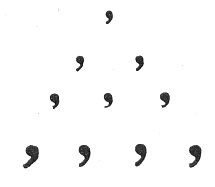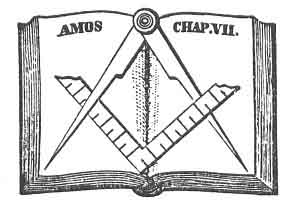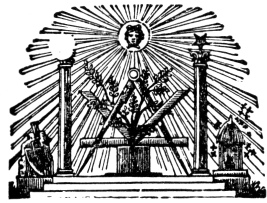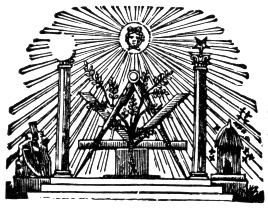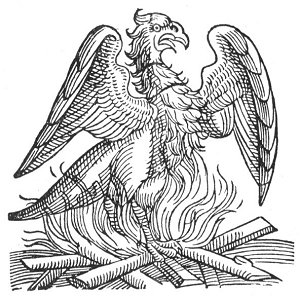The true Mason is he who labors strenuously to help his Order effect its great purposes. Not that the Order can effect them by itself; but that it, too, can help. It also is one of God’s instruments. It is a Force and a Power; and shame upon it, if it did not exert itself, and, if need be, sacrifice its children in the cause of humanity, as Abraham was ready to offer up Isaac on the altar of sacrifice. It will not forget that noble allegory of Curtius leaping, all in armor, into the great yawning gulf that opened to
p. 28
swallow Rome. It will TRY. It shall not be its fault if the day never comes when man will no longer have to fear a conquest, an invasion, a usurpation, a rivalry of nations with the armed hand, an interruption of civilization depending on a marriage-royal, or a birth in the hereditary tyrannies; a partition of the peoples by a Congress, a dismemberment by the downfall of a dynasty, a combat of two religions, meeting head to head, like two goats of darkness on the bridge of the Infinite: When they will no longer have to fear famine, spoliation, prostitution from distress, misery from lack of work, and all the brigandages of chance in the forest of events: when nations will gravitate about the Truth, like stars about the light, each in its own orbit, without clashing or collision; and everywhere Freedom, cinctured with stars, crowned with the celestial splendors, and with wisdom and justice on either hand, will reign supreme.
In your studies as a Fellow-Craft you must be guided by REASON, LOVE and FAITH.
We do not now discuss the differences between Reason and Faith, and undertake to define the domain of each. But it is necessary to say, that even in the ordinary affairs of life we are governed far more by what we believe than by what we know; by FAITH and ANALOGY, than by REASON. The “Age of Reason” of the French Revolution taught, we know, what a folly it is to enthrone Reason by itself as supreme. Reason is at fault when it deals with the Infinite. There we must revere and believe. Notwithstanding the calamities of the virtuous, the miseries of the deserving, the prosperity of tyrants and the murder of martyrs, we must believe there is a wise, just, merciful, and loving God, an Intelligence and a Providence, supreme over all, and caring for the minutest things and events. A Faith is a necessity to man. Woe to him who believes nothing!
We believe that the soul of another is of a certain nature and possesses certain qualities, that he is generous and honest, or penurious and knavish, that she is virtuous and amiable, or vicious and ill-tempered, from the countenance alone, from little more than a glimpse of it, without the means of knowing. We venture our fortune on the signature of a man on the other side of the world, whom we never saw, upon the belief that he is honest and trustworthy. We believe that occurrences have taken place, upon the assertion of others. We believe that one will acts upon
p. 29
another, and in the reality of a multitude of other phenomena that Reason cannot explain.
But we ought not to believe what Reason authoritatively denies, that at which the sense of right revolts, that which is absurd or self-contradictory, or at issue with experience or science, or that which degrades the character of the Deity, and would make Him revengeful, malignant, cruel, or unjust.
A man’s Faith is as much his own as his Reason is. His Freedom consists as much in his faith being free as in his will being uncontrolled by power. All the Priests and Augurs of Rome or Greece had not the right to require Cicero or Socrates to believe in the absurd mythology of the vulgar. All the Imaums of Mohammedanism have not the right to require a Pagan to believe that Gabriel dictated the Koran to the Prophet. All the Brahmins that ever lived, if assembled in one conclave like the Cardinals, could not gain a right to compel a single human being to believe in the Hindu Cosmogony. No man or body of men can be infallible, and authorized to decide what other men shall believe, as to any tenet of faith. Except to those who first receive it, every religion and the truth of all inspired writings depend on human testimony and internal evidences, to be judged of by Reason and the wise analogies of Faith. Each man must necessarily have the right to judge of their truth for himself; because no one man can have any higher or better right to judge than another of equal information and intelligence.

Moe is the founder of GnosticWarrior.com. He is a father, husband, author, martial arts black belt, and an expert in Gnosticism, the occult, and esotericism.

